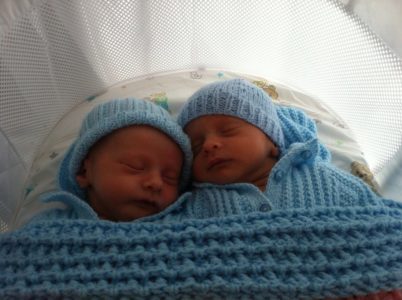Desiree Morgan was shocked and stressed when she first discovered that she was carrying triplets.
Going from having one to four children was a shocker says the mother-of-four.
“I was thinking of all the expenses and how we’d cope,” she says of the time she learned she was pregnant with triplets.
It was only after she met someone at Multiples Counties Manukau that she realised it was going to be ok.
Multiples Counties Manukau is a volunteer-run organisation that supports families in their journey from expecting to raising multiples—families that have two, three or more babies at a time.
President of the group for the last two years, Desiree says that the club provides a support system for parents with multiples by giving them free nappies, help sourcing premature clothing/bedding, providing support of a lactation consultant, as well as mother helpers to cope with post natal depression.

They address diverse needs of families with multiples by working in partnership with community groups, health care providers and educators.
The group recently celebrated Multiples Awareness Week with a picnic at the Botanical Gardens–the theme being `share the journey-stronger together’.
“We think the awareness week is important because of the difficulties faced by families with multiples are often unknown,” says Desiree, mother to 16-year-old Cheyenne, Dante, Roxas (four-year-old twins) and Vincent Eason (two-year-old).
Multiple births have higher rates of complications, birth defects, prematurity and difficulties with feeding.
“Parents of multiples barely get a few hours’ sleep and each additional baby can lead to mental breakdown,” says Desiree. “Also there is often a financial burden involved.”
Talking about the logistics of feeding, clothing, sleeping patterns and bathing multiples, she says it is tricky and often babies experience less one-on-one time.
“As a result, there is a higher rate of parental guilt, despair and post-partum depression for both mothers and fathers.”
Statistically, the rates of divorce in the first year of marriage is much higher, she says.
“Support, especially in the first six months, is vital to the health of every family member,” says Desiree who experienced post-partum depression.
One of the triplets was stillborn and Roxus, (one of the twins) was not expected to survive either.
“We didn’t know if he was going to live until he was five days old and was quite fragile.”
Those were hard times but now Desiree is a self-assured mother who believes that the best thing about being a volunteer at Multiples Counties Manukau is the difference they make to people’s lives.
“Also, I can easily understand their struggles and am grateful that they helped me at a time when I was very vulnerable,” she says.
Desiree admits she was a tad disappointed when she went for an ultrasound two years after the birth of her twins and discovered there was only one blob showing up instead of two.
According to Statistics New Zealand in 2018 there were 714 sets of twins born. The percentage of multiple births that make up the overall birth rate was 1.24 per cent.
Triplet births stayed the same with three sets born in 2018 (all stats are including stillbirths). In 2018, the first set of quads in 20 years was born.








